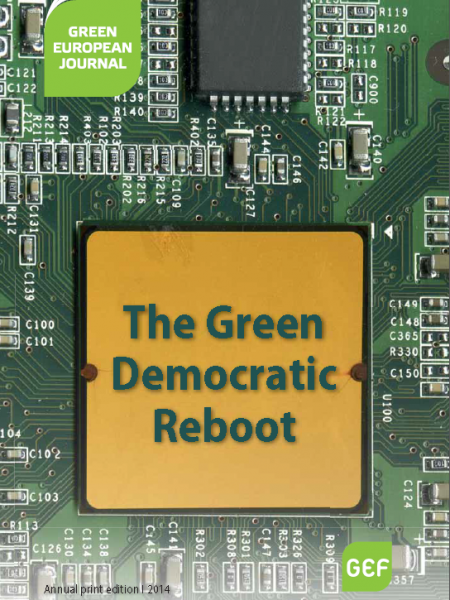What we want to discuss is the dual significance of the “sustainability of democracy”: 1. the capacity of democratic systems to be “sustainable”, and to be transmitted to the future generations; 2. the ability of democratic representative systems to take up the ecological challenge and to respect the rights of the future generations.
The European elections showed us just a few worrisome trends: low voter turnout, especially in the newer member states; successes of populist, eurosceptic, even anti-democratic, parties; authoritarian tendencies; a narrowing of the pluralism in debates; the transformation of activism in political parties at a time when their hold on political life is only getting stronger…
These trends can be observed both at a national and European level where they are likely to have been accentuated by the economic and financial crisis. This edition seeks to identify and examine their root causes. It also sketches some reforms that could address them by, for example, strengthening participation in the democratic life in Europe.
This combination of active citizenship and ecology is written onto the hard disk of nearly all Green parties across the world.
But for the Greens and for all those who feel concerned by ecological problems, it is not only the future of democracy that is at stake, it is also the lot of future generations. This is the reason why since their beginnings in the seventies, the Greens have been advocating that it was not only possible but also necessary to achieve the ecological transformation of our lives through the reinforcement of democratic participation.
This combination of active citizenship and ecology is written onto the hard disk of nearly all Green parties across the world. It was also the base on which the Greens decided to start the “long march through the institutions” that led them not only into the parliaments but also into many governments in different European states.
More than thirty years later, the time has probably come to reflect on this original combination between democracy and ecology. Clearly, this does not mean that we need to go “back to the roots”, to an orthodox conception of grassroots democracy from the early stages of the Greens. Nor does it mean that we want to sacrifice this pillar of the Green identity. On the contrary! What we do mean, however, is to reinvigorate the demand for democratic participation and to see how this demand can rise to the many democratic challenges that Europe currently faces.
But on the other hand, if we want this debate to be relevant, we need to take the deep changes to the historical context into account. In forty years, the social bases of both civic participation and environmental awareness have completely changed. Therefore, it is absolutely crucial to listen to the sociologists and political scientists who can help us to understand the changes that affect the social bases of this “Green citizenship”.
We believe that the Green political foundations have a very important role to play in the democratic reboot, i.e., the re-inventing, re-establishing and re-launching of democracy on its new social and political bases.
Between 1980 and 2014, not only has the scale of the ecological problems dramatically expanded, but the social and anthropological conditions of political commitment have also been deeply transformed by the cultural evolution of our post-industrial societies. Any proposals of reforms of the current democratic institutions towards more sustainability or more participation that would not integrate these structural changes would be doomed to fail.
More specifically, this edition examines the role that Green foundations can play in these debates, whatever their size and financial means. Therefore we have asked six different Green national foundations to explain how they concretely try to address the democratic and environmental issues in their respective countries. We have also asked them to describe briefly how they contribute to the reinforcement of the civic participation in their respective countries.
We believe that the Green political foundations have a very important role to play in the democratic reboot, i.e., the re-inventing, re-establishing and re-launching of democracy on its new social and political bases. Their autonomy towards the parties gives them better opportunities to enter into a dialogue with all the social and democratic movements that are not satisfied with the current state of our political systems. At the same time, they can modestly contribute to the “democratic reboot of the Greens” and, thereby, to the preparation of a new phase in the history of green political parties.
The scenario is not written yet. But it can be inspired by some democratic and social experiments that have been implemented recently. This is why the third section of this edition is dedicated to democratic initiatives and experiments which, albeit through a learning process of trial and error, are concrete attempts to fulfill the Green promise of more democracy and more sustainability.

